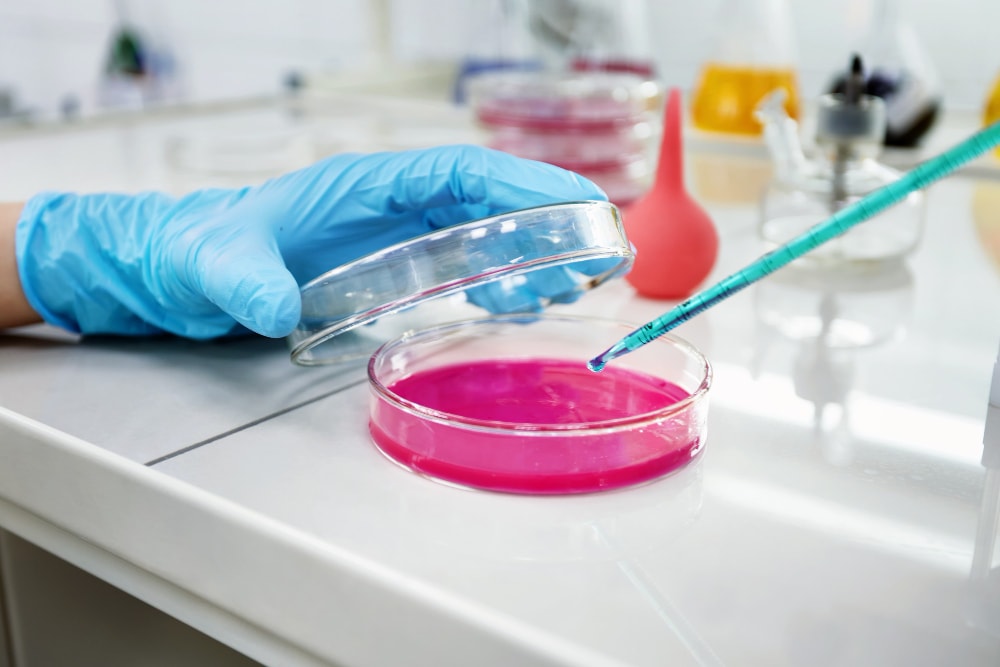
Understanding the Stool Culture Test: Purpose, Procedure, and Results
Time to read 8 min
Time to read 8 min
A healthy digestive system is important for overall health, and finding potential problems before they turn into significant issues really is almost close to saving your life.
One of the most conventional diagnostic tools used to check up on the gut health is the stool culture test.
It detects both bacterial infections and various other conditions that may affect the gastrointestinal region; thus, it tends to determine how these might impact your health in one way or another.
Knowing what a stool culture test is, how it works, and why it matters can empower a person to take control of his or her gut health.
A stool culture test is a laboratory test in which a stool sample is assessed to look for the existence of pathogens, such as harmful bacteria or parasites, that may be contributing to gastrointestinal problems.
This test is performed when a person has symptoms such as chronic diarrhea, abdominal pain, or blood in the stool, which may be symptoms of some type of bacterial infection or other form of medical condition.
A stool culture is particularly useful when an individual is suspected of having infection by some specific bacteria, such as Clostridium difficile, Salmonella, or Shigella, perhaps causing infection in the gastrointestinal tract.
This is a straightforward and non-invasive test; thus, it is one of the most common methods applied to diagnose infections related to the gastrointestinal system.
The sample used in this test is collected from the patient and analyzed in the laboratory to determine the existence of any harmful microorganisms.
The stool culture test is a good tool in the diagnosis because the symptoms of gastrointestinal infections overlap with those of other digestive disorders, hence hard to pinpoint the causative agent of the discomfort.
A stool culture will serve to identify the exact pathogen causing the symptoms, thereby affording healthcare providers the opportunity to prescribe appropriate treatment.
The test also helps to rule out conditions such as irritable bowel syndrome (IBS) or inflammatory bowel disease (IBD), which have similar symptoms but require different treatment approaches.
In addition, the stool culture test can be of paramount importance to the prevention of infectious diseases' spreading. Some bacteria and parasites are really contagious - transmitted through contaminated food, water, or contaminated surfaces.
The earlier pathogens can be caught with a stool test, the more it is possible to prevent outbreak thus promoting public health safety.
There are specific instances where a stool culture test would be recommended by your physician. These include the following:
When diarrhea lasts for some days, then a stool culture may need to be carried out so as to establish whether the cause of diarrhea is bacterial infection. Diarrheal conditions that last for some extended period increase dehydration and weaken the body's immunity, therefore calling for early diagnosis.
Blood or mucus in the stool are good indicators of infection or inflammation. Presence of these materials may indicate some serious gastrointestinal problems, and stool culture may help narrow down the real cause of these problems.
Unexplained abdominal pain, fever, and nausea could be an infection of the digestive system. A stool culture may be obtained to look for bacteria such as Salmonella or E. coli that might cause these symptoms.
You may have visited a poorly sanitary area, where pathogens entered the body through contaminated food and water. Stool culture may be requested to be tested for infections like parasites or bacteria which one would typically catch in the area.
In the event of an outbreak, a stool culture test can be used to identify the causative agent and further prevent its spread. In many of the foodborne disease outbreaks, it is possible to trace them back to specific bacteria or parasites and the stool culture will actually determine which is responsible.
Although a stool culture test itself is not so complicated of a process, there is still a fairly bit to look forward to. Here's what you can expect:
First, the patient is advised to collect a stool sample in a clean container. Care is taken to see that no sample is contaminated by urine, toilet paper, or water from the toilet.
The sample should be delivered to the laboratory as promptly as possible. However, it can be refrigerated for up to 24 hours if delivery is not prompt. Your doctor will instruct you on how to get the sample collected correctly.
In the lab, technicians will spread the sample on a culture medium designed to enhance the growth of either bacteria or other related microorganisms.
Samples are then incubated for some days; this usually takes up to 48 hours before any pathogen multiplies. This stage assists in identifying the bacteria causing the infection.
If specific bacteria are isolated in the culture, further testing is carried out to determine the strain and whether the strain is sensitive to antibiotics.
The stool culture requires some days to revert back to the lab. Once the laboratory reaches a diagnosis of the existence of pathogens, the healthcare provider will be able to discuss the test results and possibly give a diagnosis.
What does it mean? If the test shows that dangerous bacteria are present, appropriate treatment, including antibiotics, will be given.
In case dangerous pathogens are not found in stool culture tests, infections through bacteria can be ruled out as a cause. Other possible sources of infection may need additional tests.
A stool culture test will detect several pathogens that cause symptoms of gastrointestinal distress. Some of the more common bacteria identified in a stool culture test are:
Salmonella is a bacterium which is often associated with contaminated food, especially undercooked chicken and turkey, as well as any raw vegetables. Symptoms include diarrhea, abdominal cramps, and fever. A stool culture test diagnoses Salmonella so it can be treated right away.
C. diff, or Clostridium difficile, is a bacterium that causes severe diarrhea and inflammation of the colon primarily in individuals who have recently taken antibiotics. One detection method for C. diff bacteria in the digestive system is through a stool culture test.
Another bacterium that causes very bad diarrhea, often with blood or mucus, is Shigella. Typically, it transmits through contaminated foods and drinking water to cause outbreaks; hence, early detection through stool tests is very important.
Some strains of E. coli can cause food poisoning, with symptoms such as diarrhea, cramping and abdominal pain, and vomiting. A stool culture can identify which harmful E. coli strains are responsible for the illness and guide proper treatment.
In addition to identifying the presence of bacteria, a stool culture can also be used to identify certain parasites that can cause gastrointestinal signs and symptoms.
Giardia and Cryptosporidium are two examples of pathogens that must be identified as soon as possible during a patient's illness in order to properly treat the patient.
Preparing for a stool culture is quite simple. One does not need to abstain from food or follow any specific instructions before performing the test. However, your doctor might request you to avoid certain medications to be taken before the test as they can affect your test results.
These are usually antibiotics, antacids, or antidiarrheal medications. On the other hand, appropriate and effective collection of your stool sample is essential to ensure a correct diagnosis.
What to Avoid
While preparing to have a stool test, avoid contamination of the sample from urine, toilet paper, or water from the toilet. All these will interfere with the accuracy of the results from the stool culture. Obtain the sample in the container given or a clean, dry and only for this purpose holding container.
A summary of interpreting results from a stool culture test is as follows:
Once the stool sample is processed, the laboratory will be able to let the health care provider know whether harmful pathogens have been found in the stool.
Your healthcare provider will be able to know whether a bacterial infection or other microorganisms cause your symptoms from the test results.
If the results are positive, the health care professional will treat you with prescription medications depending on the pathogen found.
For example, if one type of pathogen is a bacteria, the health care provider will treat you with antibiotics. If one type of pathogen is a parasite, the health care provider will treat you with antiparasitic drugs.
In the event the stool culture is negative because no dangerous bacteria or parasitic organisms were found, then other tests would be carried out to try as much as possible and identify the cause of those symptoms. Among such diagnostic tests include blood tests, imaging studies, or endoscopy procedures to examine the digestive tract.
The most essential test for the upkeep of intestinal health as well as its monitoring is a stool culture. Since gastrointestinal infections cause prolonged damage when they are not treated in time, an a stool culture test serves as a timely intervention method.
Furthermore, this test describes different types of bacteria found in stool and how they affect the body.
Furthermore, stool cultures may give information regarding the general condition of the gut flora. Some bacteria in stool play a beneficial role in breaking down digestion and maintaining a balance in the gastrointestinal system.
An infection creates a disturbance, and changes in this balance are what a stool culture can reveal, therefore making the treatment more targeted.
The stool culture test is one of the important diagnostic tools, and it identifies different bacterial infections as well as other common gastrointestinal issues.
Useful information for the existence of dangerous pathogens allows health care providers to decide the right treatment procedure to reduce any kind of discomfort experienced by patients and avoid other complications that may arise in future.
Be it persistent diarrhea or abdominal pain, or perhaps other symptoms that may advise a patient of having an infection within the digestive tract, this test can be of great assistance in determining the exact cause of their discomfort.
If you have unpredictable digestive symptoms that last more than a few days, ask your doctor about a stool culture test. Knowing what is causing your symptoms enables you to take the proper steps to get your health back in order and onto the right track again.
Medical Disclaimer - The following information is for educational purposes only. No information provided on this website, including text, graphic, and images, are intended as substitutes for professional medical advice. Please consult with your doctor about specific medical advice pertaining to your condition(s).

